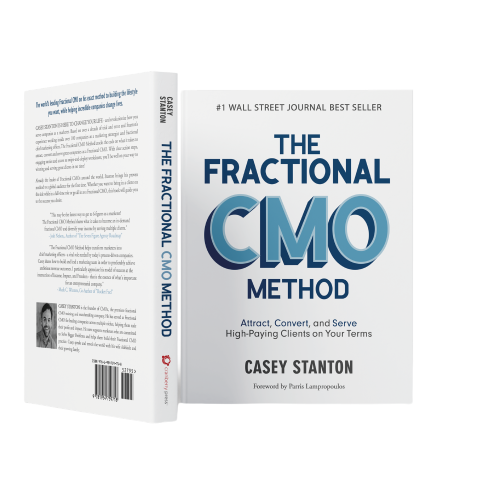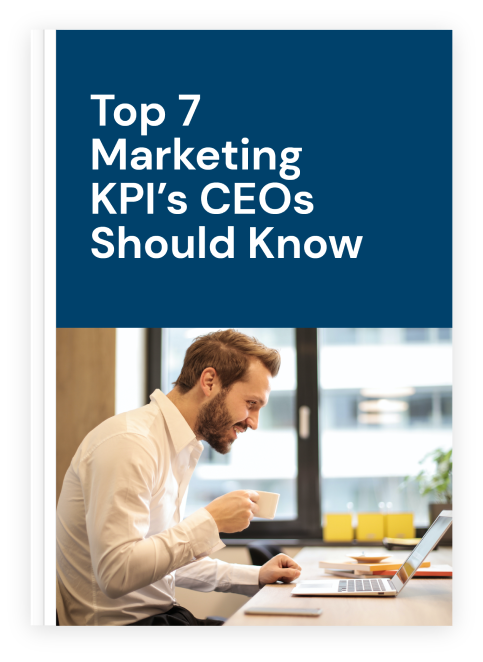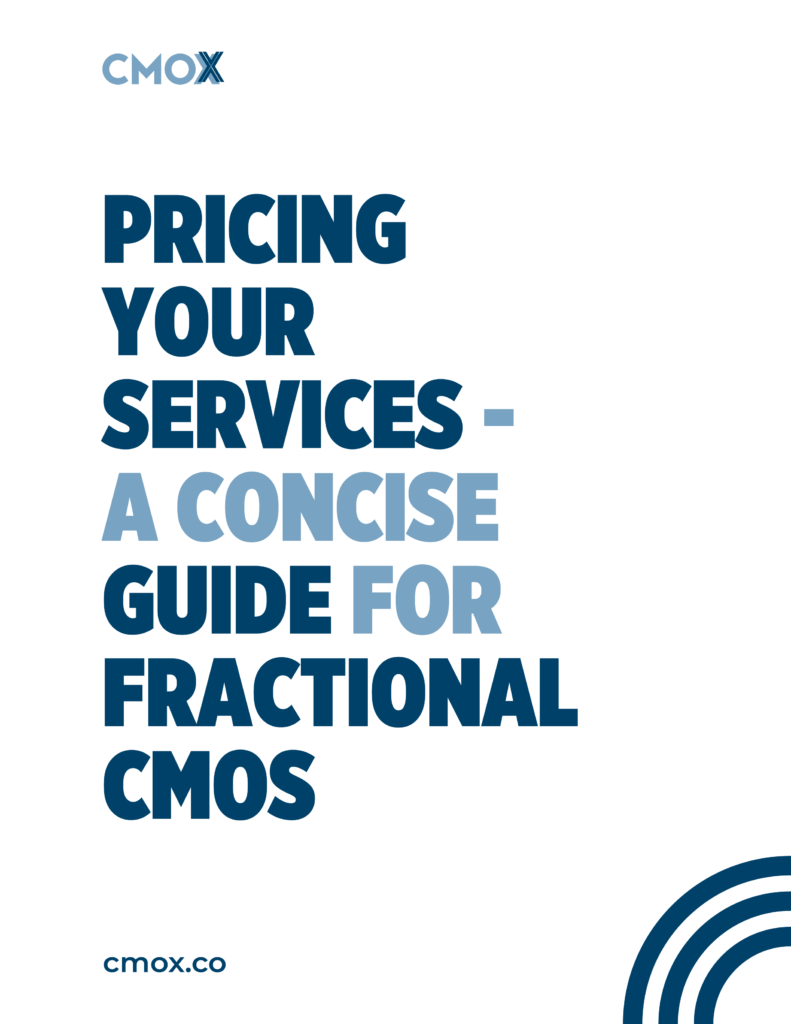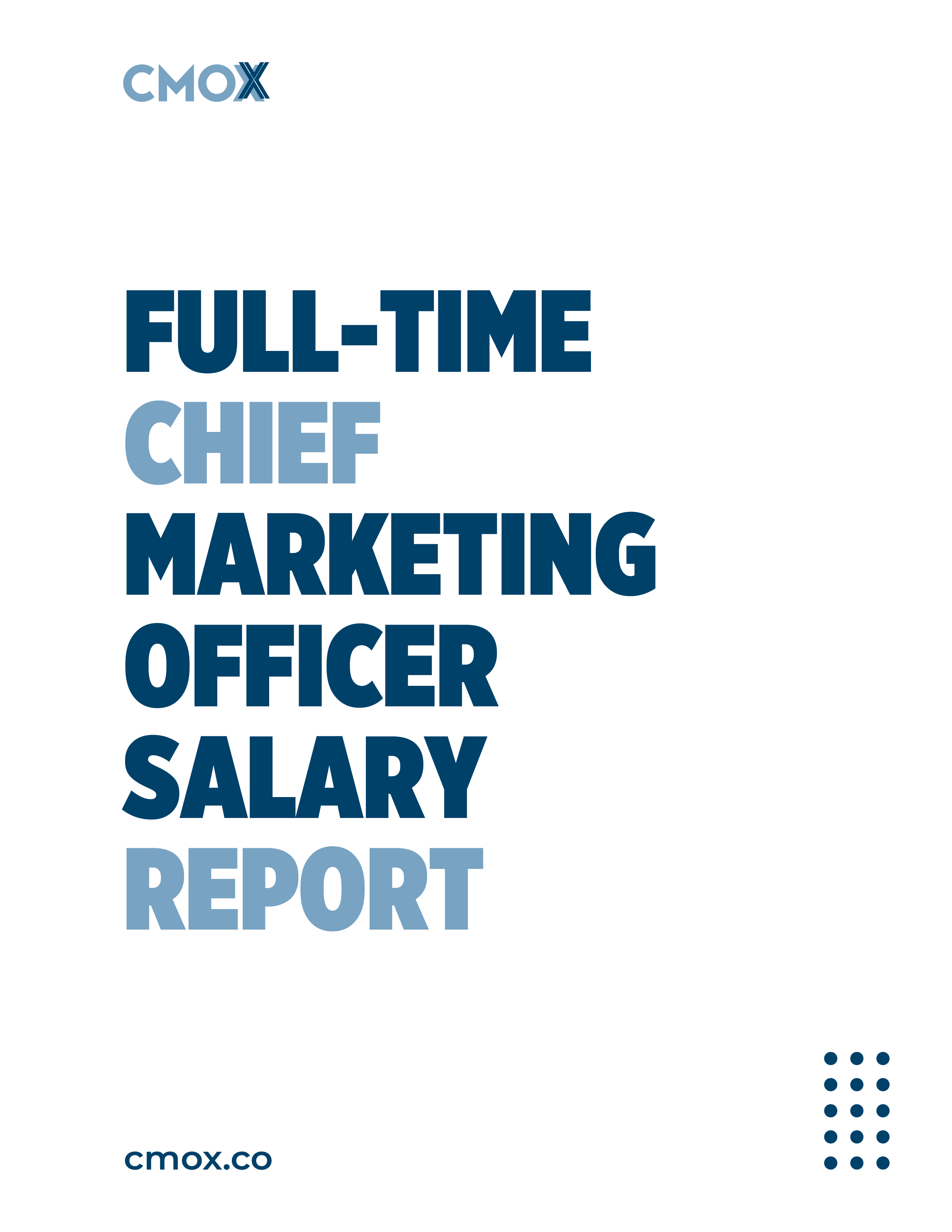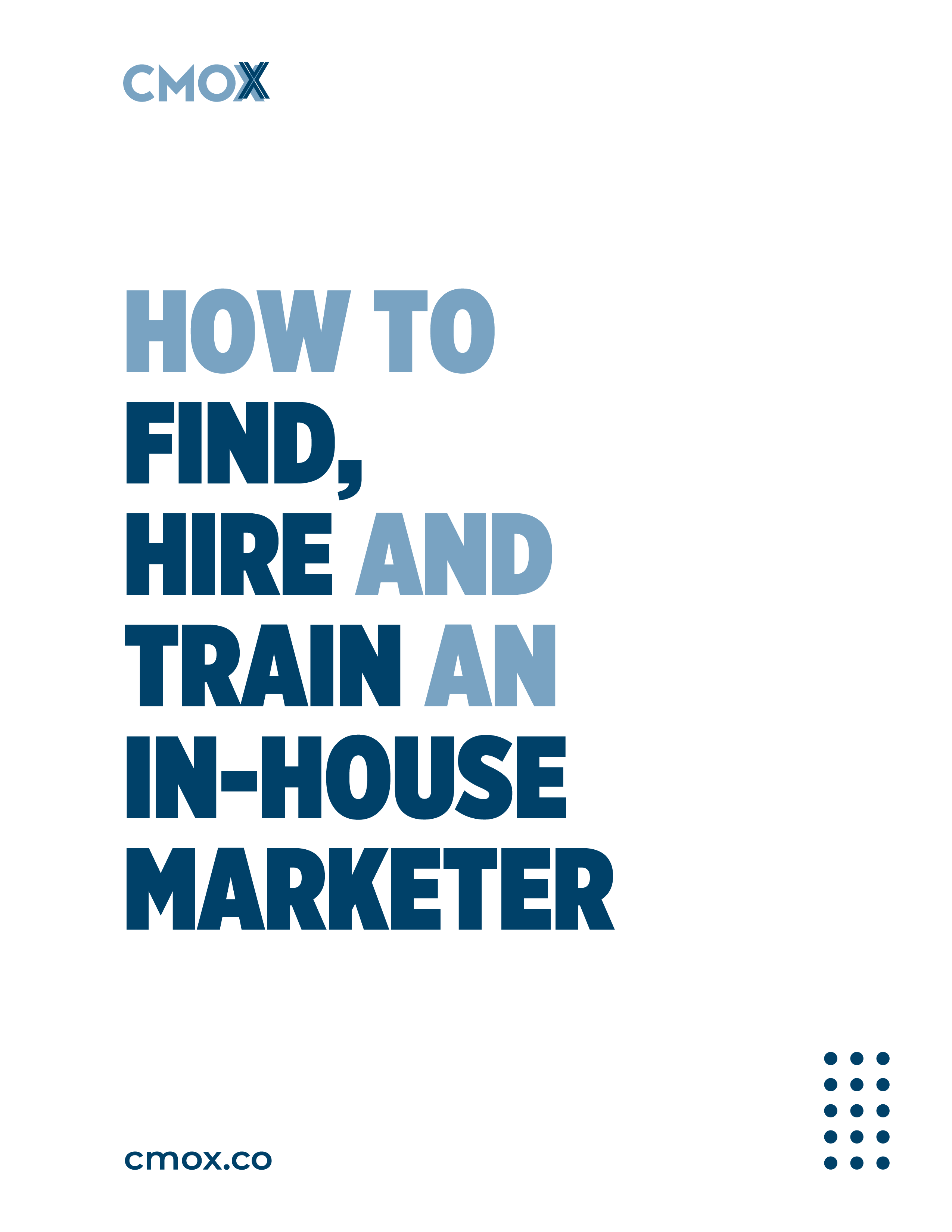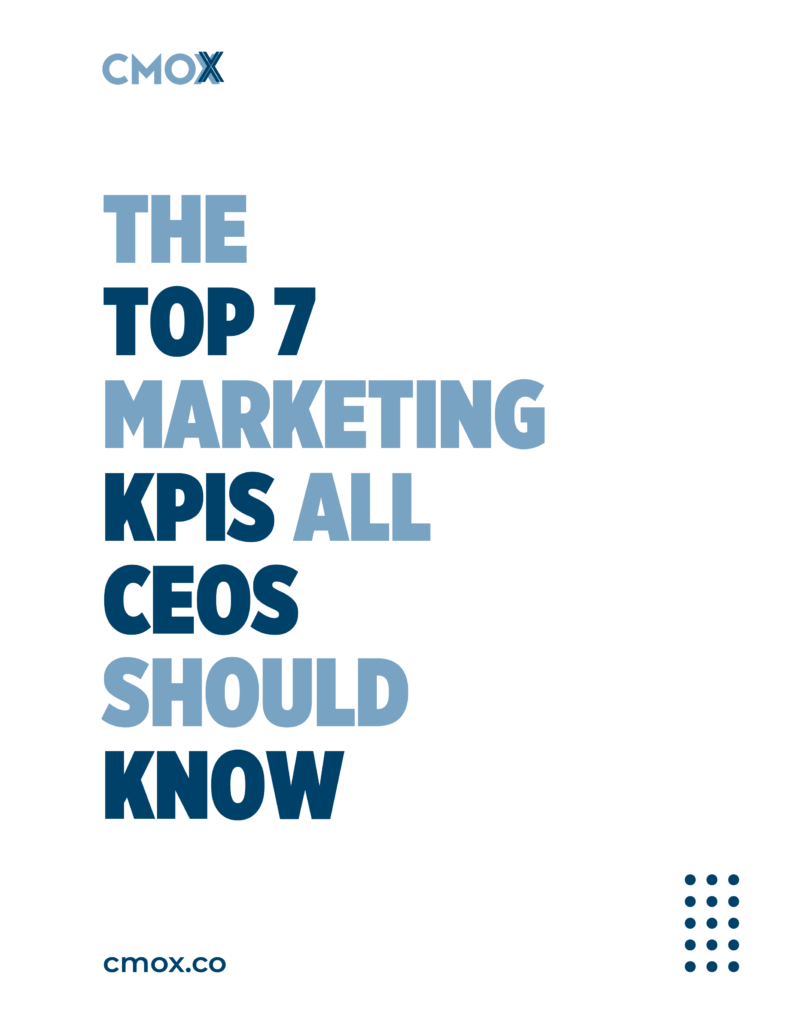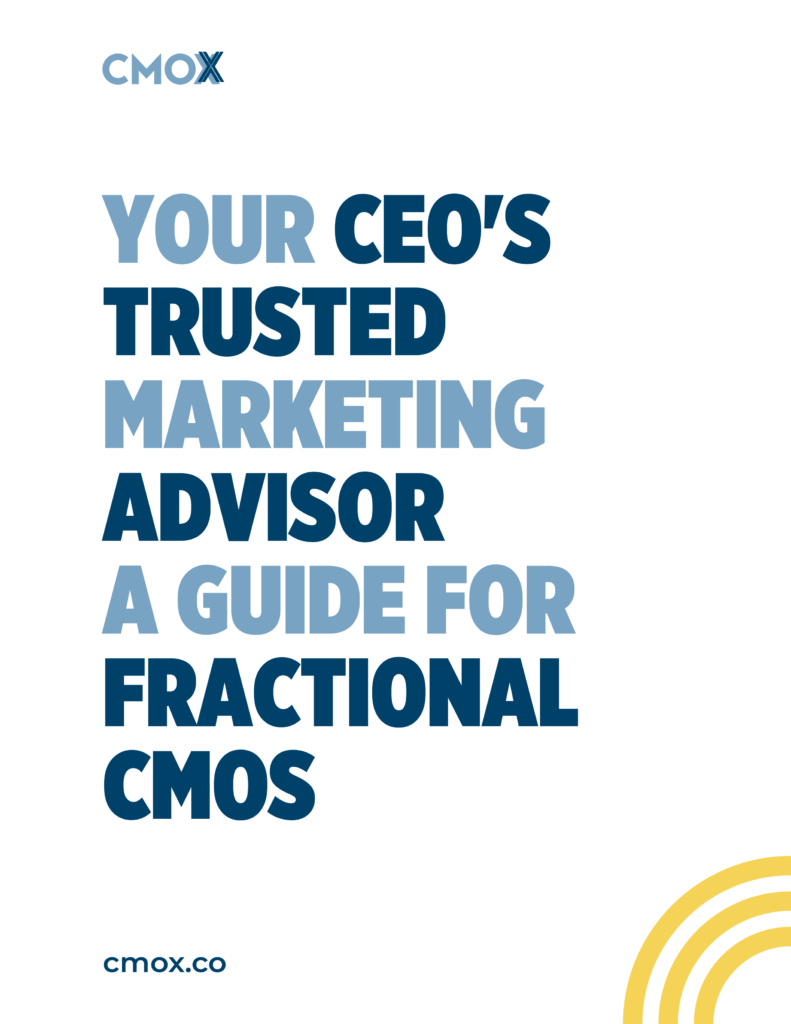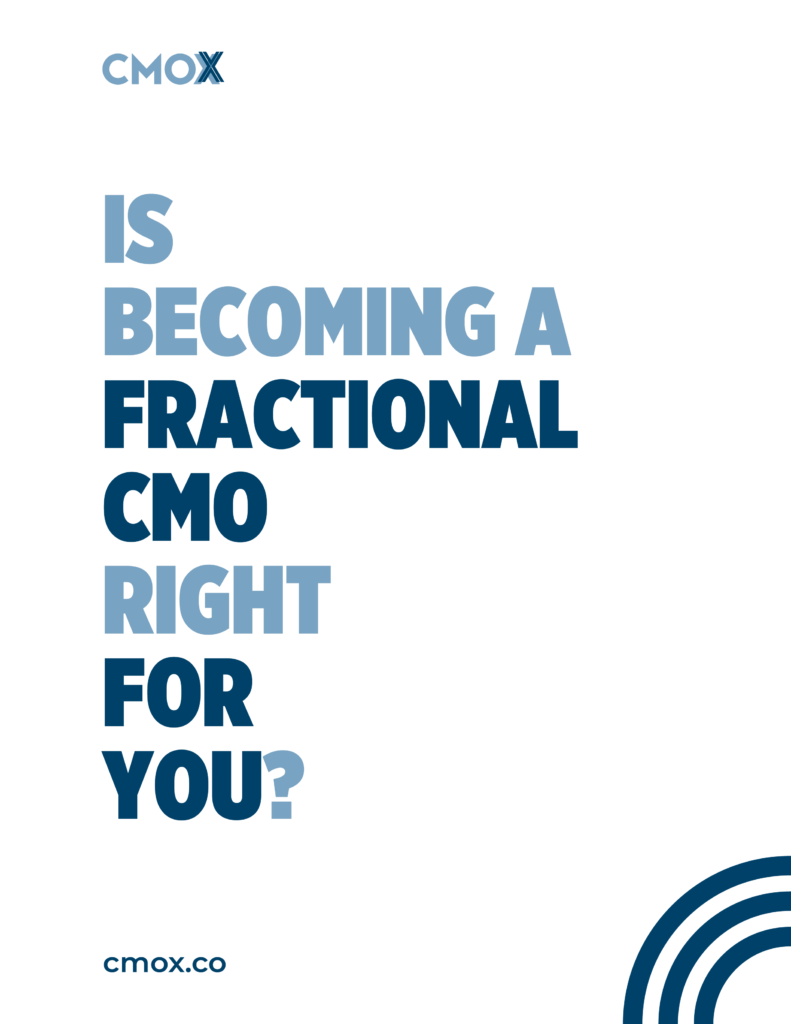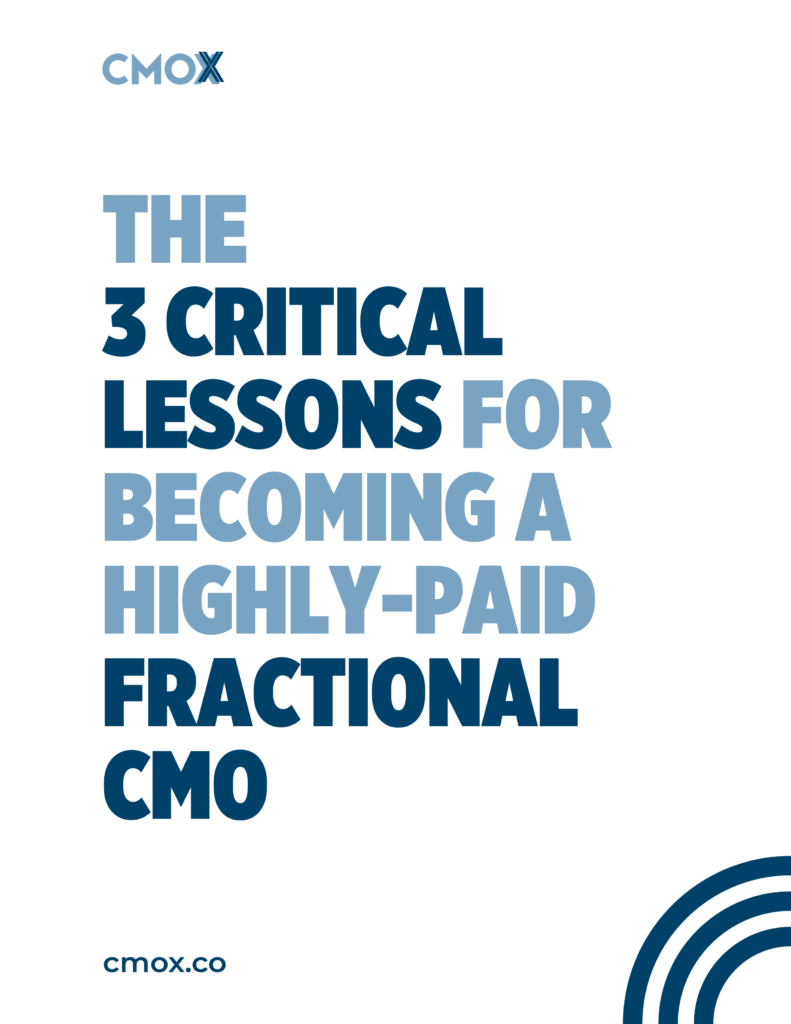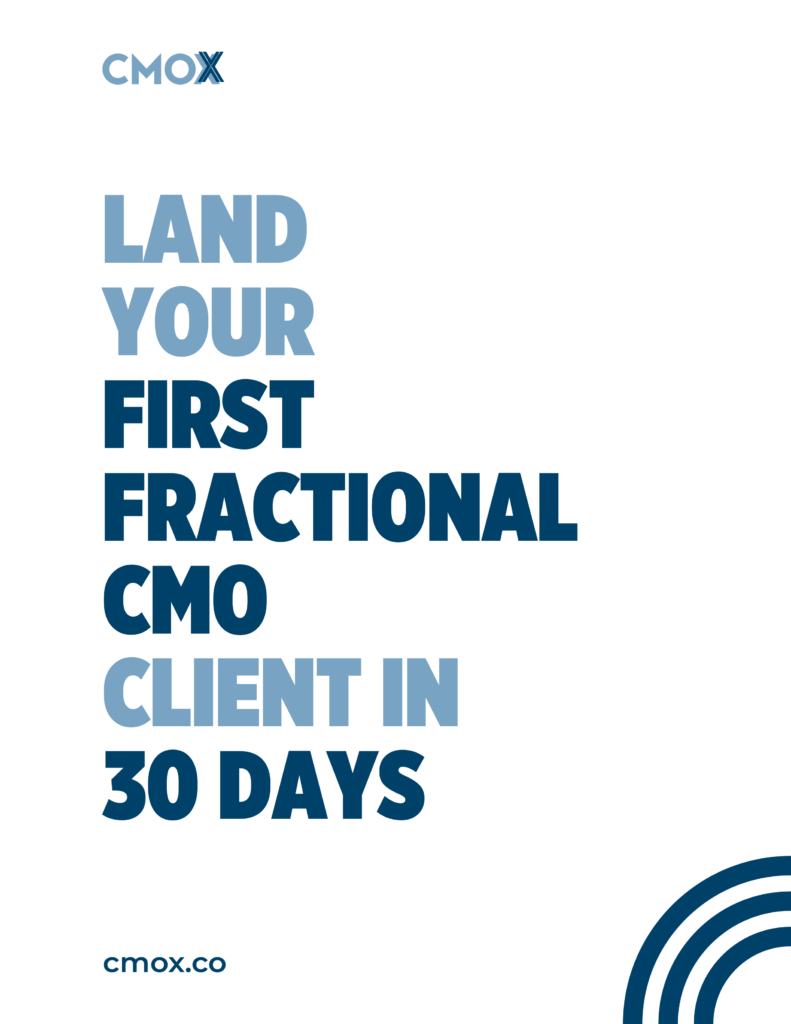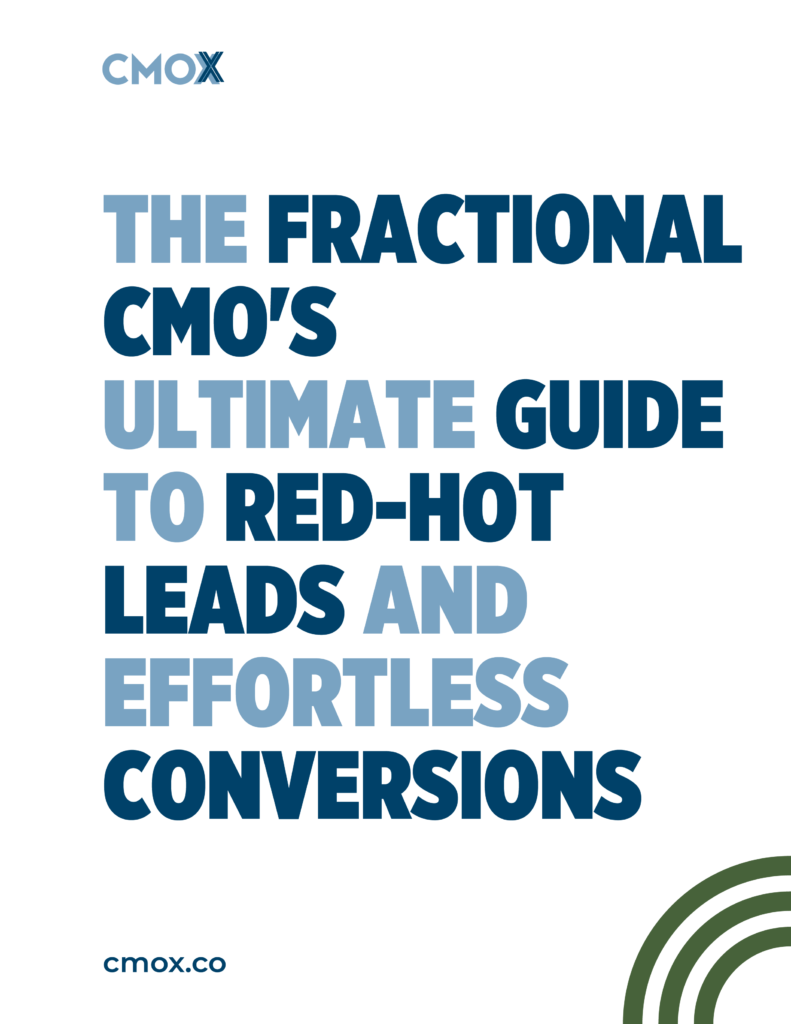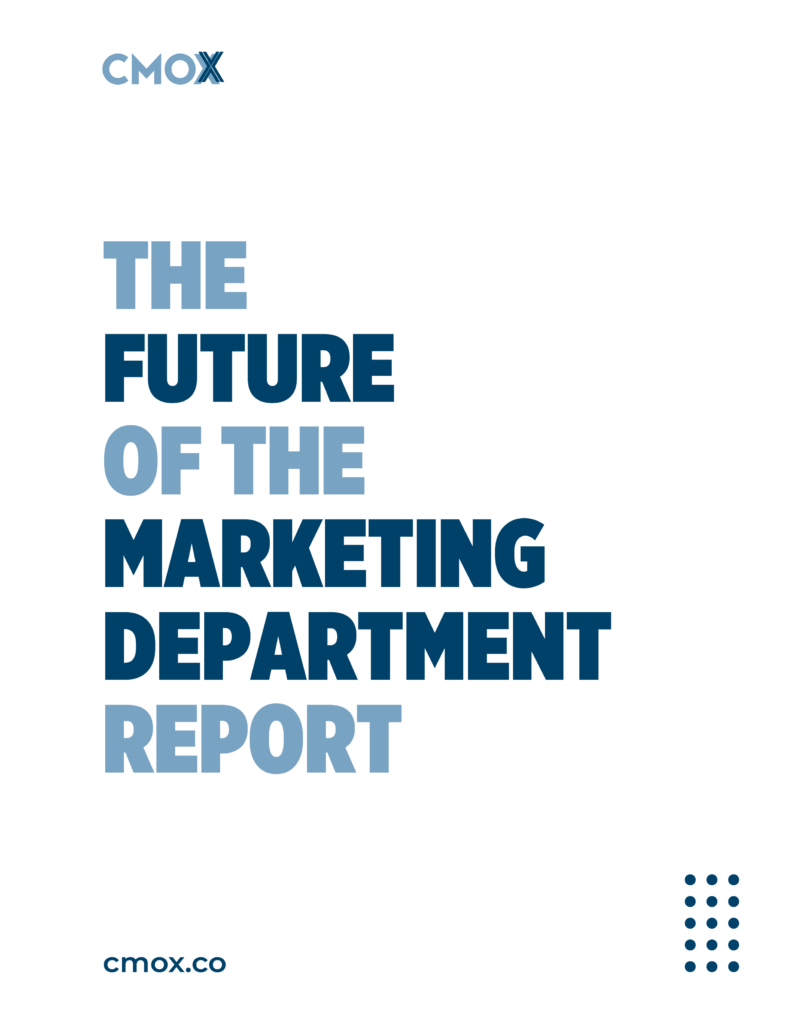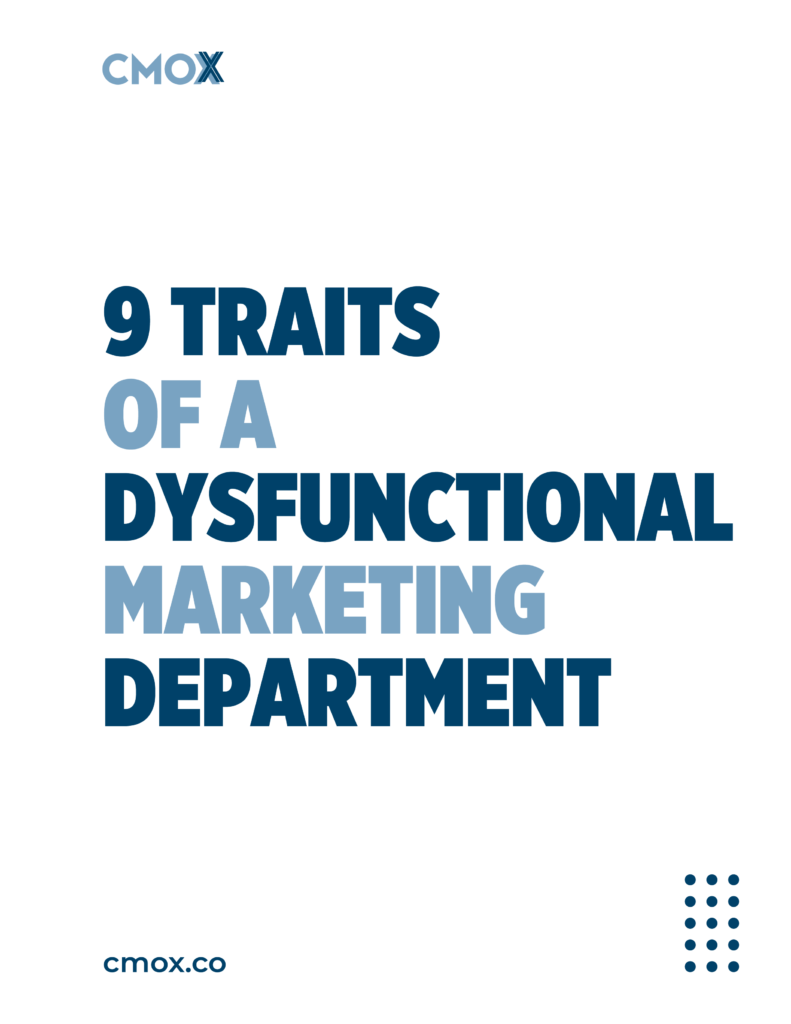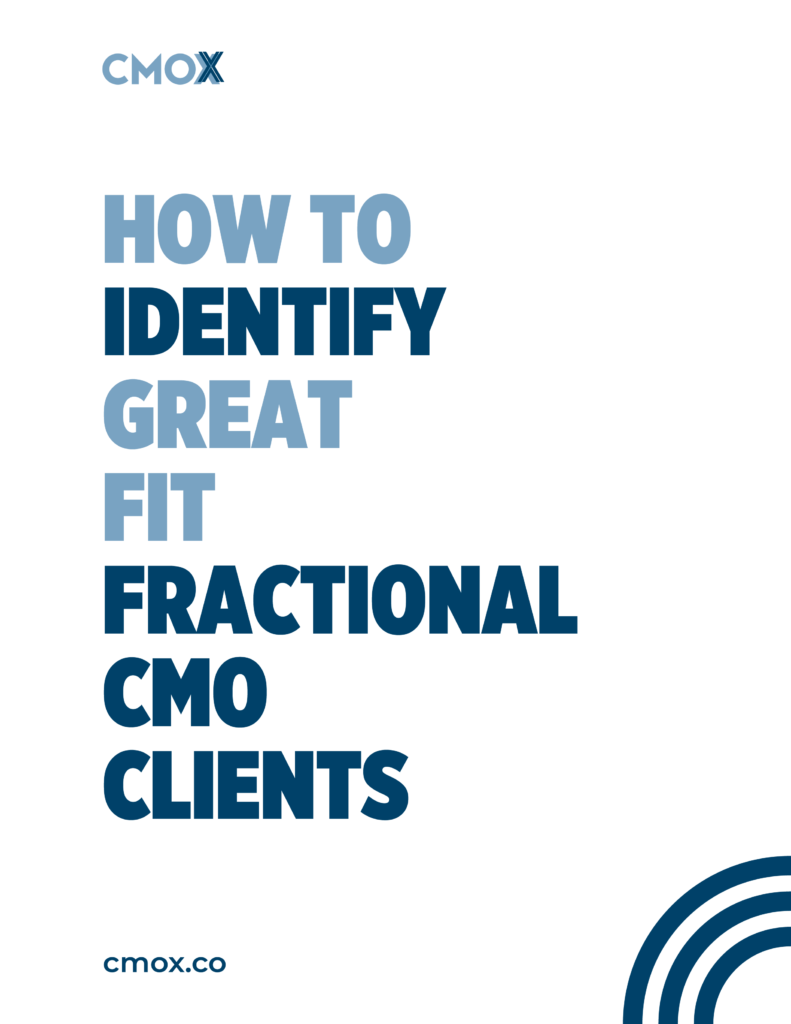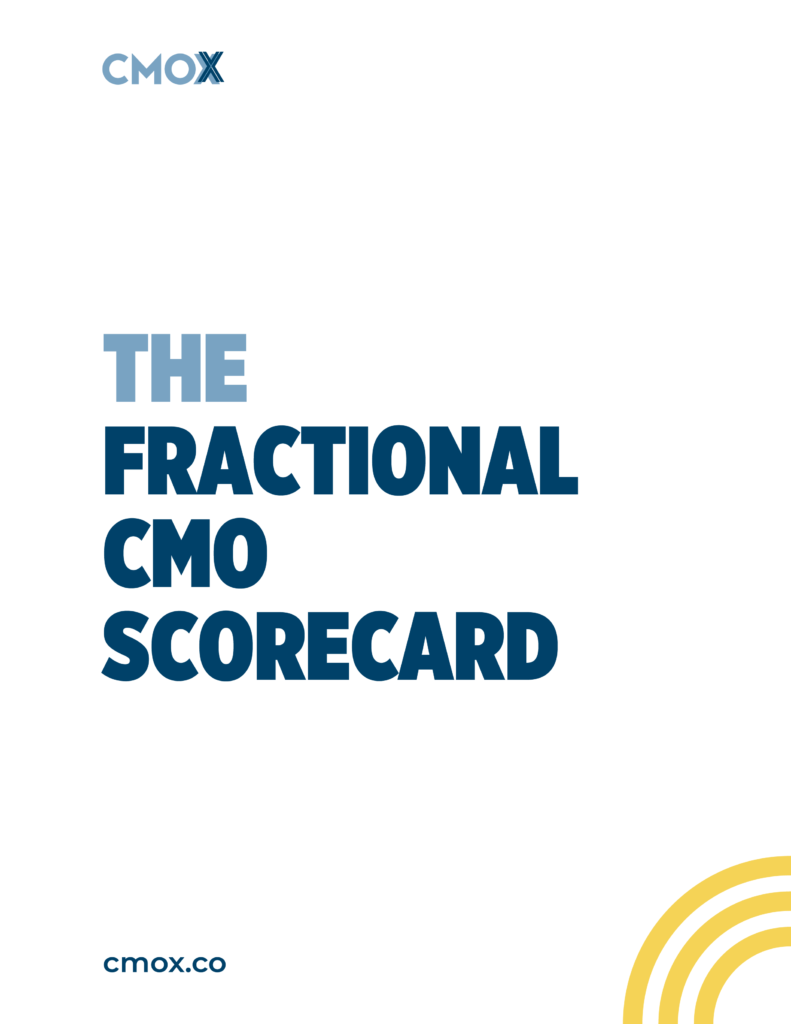The Chief Marketing Officer (CMO) career path can often involve moving into positions of greater responsibility and scope. This may mean growing their career to becoming a Chief Marketing Officer.
While companies have often outsourced their marketing needs to agencies in the past, Chief Marketing Officers and fractional CMOs overseeing in-house marketing departments are becoming increasingly in demand. The need for robust and distinct brand identities continues to rise, making dedicated marketing leaders more valuable than ever.
Of course, this means marketers seeking to grow their careers may feel the next logical step is to become a CMO.
As businesses of all sizes grow and compete for similar demographics, brand recognition has become crucial to converting and retaining loyal customers. CMOs support these efforts by knowing what works, what doesn’t, what’s been overdone, and what’s been overlooked.
If you:
- Thrive in fast-paced environments with plenty of variation
- Possess boundless wells of creativity
- Have a knack for developing business strategy, and
- Bring out the best in others
- Know how to implement and follow up on campaigns
…you may have what it takes to build a successful career as a Chief Marketing Officer (CMO).
This marketing specialist career path provides an exciting opportunity to put new businesses on the map or breathe new life into a well-known company needing a refresh. CMOs are also generally also well-paid,, and allows individuals to pick and choose the industries in which they want to work.
For marketing specialists looking to take the next step in growing their careers, the CMOx Accelerator program provides the foundation for becoming a fractional CMO.
Growing your career to become a CMO can be challenging and may take time, but the rewards are often well worth the effort.
General CMO Career Path
The general career path a marketing specialist takes to becoming a CMO involves moving from lower level positions to higher ones. Each step involves developing and growing skills and experience in marketing strategy, implementation, project management, and tracking.
Before you can successfully develop and lead a team, you need to learn the foundations and nuances of marketing initiatives, along with how to anticipate and identify shifts in marketing trends. The only real way to do this is to obtain an entry-level marketing position and increase your value and experience enough to move up the ladder. Like any other career progression, CMOs need to start at the beginning and work their way to the top.
However, this is by no means a rote or standardized process. You can use strategies and development tools to develop your technical skills, increase your upward momentum, and reach the C-level career just a bit faster.
Typical career paths for a marketing specialist to become a Chief Marketing Officer follows these general stages:
- Entry-Level Marketing Position
- Marketing Manager
- Director or Marketing
- VP of Marketing
- Chief Marketing Officer
Entry-Level Marketing Position
Entry-level marketing positions are for individuals just starting out in marketing, either fresh from college or as part of a career change. These positions usually require a maximum of 2 years of experience and position you as a coordinator or specialist in the marketing industry.
When searching for these positions, look for project, social media, account, marketing, and event marketing coordinator positions or event marketing and marketing specialist positions. These jobs provide a basic understanding of the marketing industry and involve a lot of research and administrative tasks.
The entry-level marketing position is an important first step on the chief marketing officer career path as it develops the foundational skills necessary for implementing successful strategies.
Marketing Manager
After you’ve proven your skills and knowledge as an entry-level marketing specialist or coordinator, you’ll qualify for management positions. These positions require more than 3 years of experience and place you as a leader over one or more employees or processes. As a marketing manager, you’ll establish, orchestrate, maintain, and evaluate marketing strategies while developing your direct reports.
Titles in marketing management tend to be specific, placing individuals in charge of things like brand, social media, advertising, or public relations management.
Director of Marketing
Several years as a marketing manager prepare you to leap into high-level management as a marketing director. This title requires 6 to 7 years of experience and positions you as the head of marketing strategy. You will likely spend your time analyzing market, customer, and competitor data gathered by your managers so you can adapt your company’s marketing campaigns to meet high-level goals.
Like managers, marketing directors are often responsible for specific marketing tasks like brand management, advertising, public relations, media, etc.
VP of Marketing
Marketing VP roles require up to 14 years of experience in the industry. By the time you’re ready for this role, you should have finely honed leadership, technical, and business skills. You’ll also act as the company diplomat, working across departments to strengthen the company’s focus and often act as a spokesperson to public audiences. You may also have a hand in interviewing and hiring for other marketing leadership positions within the company.
In this role, your title will likely be more general because you’re in charge of a larger body of teams and tasks. For instance, you may be the VP of brand development or digital marketing.
Chief Marketing Officer
When you achieve the role of Chief Marketing Officer, you’ll likely have at least 20 years of experience in various areas of marketing, advertising, brand management, public relations, and more. CMOs oversee all marketing departments and activities, including developing, planning (both annual and quarterly), and executing all marketing strategies and initiatives. Ultimately, the CMO’s role is responsible for ensuring a return on investment (ROI) for the company’s marketing efforts.
It’s important to note that full-time CMO for a single company isn’t your only option. Becoming a fractional CMO (fCMO) or CMO for hire allows you to work across industries, support smaller businesses, and optimize your earning potential. Companies benefit from your dedicated attention and expertise, and you’ll have more control over your career.
Credentials for Becoming a CMO
Marketing specialists seeking to grow a career as a CMO invest a lot of time, energy, and educational credits into their ultimate goal. Companies hiring CMOs are looking for the perfect blend of required education, certifications, practical experience, and soft skills that lend themselves to excellent leadership.
Here’s a detailed list of things many employers look for in talented CMOs.
CMO Skills
Successful CMOs must have a strong understanding of leadership, communication, time management, and marketing and communication technology.
Common skills a CMO should have include:
- Balancing the company’s marketing needs and goals with the needs of the employees, and customer expectations
- Understanding the nuances of communicating with the customer vs. motivating their team
- Taking advantage of technology to manage timelines and meet deadlines
Formal Marketing Education
At a minimum, CMOs must have a bachelor’s degree in marketing. Other acceptable bachelor’s and master’s degrees include journalism, communications, advertising, or public relations. Some companies prefer an MBA, but those with the right experience may be attractive candidates even without a master’s degree.
Companies may also ask about specific college coursework, depending on how long ago you earned your degree. Courses in economics, accounting, and data analysis are useful to your work and make hiring managers give you a second look.
CMO Certifications
Aside from formal education, marketing specialists can pursue third-party certifications as part of their path to becoming a CMO.
Certifications for CMOs serve three primary purposes:
- Increase their skillset and theoretical knowledge
- Hone their professional skills
- Increase their value to current or potential employers
The best certification courses meet all three goals, giving you the best value for your time and effort. You should always complete a certification course knowing more than you did previously. Always seek classes that fill in gaps in your skillset or provide marketing insight for a specific industry—never pursue certifications based purely on padding your resume.
If you’re unsure where to start, the two following certifications are courses offered by accredited entities that help broaden your knowledge base and keep you current on marketing best practices.
Many CMOs and potential CMOs take these courses electively to round out their education:
- Certified Marketing Management Professional, offered by the International Institute of Marketing Professionals
- Professional Certified Marketer, which is available in four specialties and recognized by the American Marketing Association
Real-World Experience
Theoretical knowledge and education are a stable foundation for becoming an effective CMO. However, there is no substitute for practical, real-world experience. Until you put your knowledge to good use in the industry, you won’t know where your strengths and weaknesses lie, nor will you know what your leadership skills and communication styles look like in a professional setting.
Handling emergencies is another crucial component of real-world experience. In marketing, emergencies may look like anything from missing a vital deadline to dealing with litigation. Once you’ve dealt with these situations, you’ll have an inside view of how to handle them even better next time.
The Many Responsibilities of a CMO
Whether fractional or full-time, the responsibilities of a CMO include all internal and external marketing activities. They should also be current on emerging technologies, social media platforms, and trends that can be used to best position the company for maximum possible exposure to the desired demographics.
Here’s a breakdown of the activities that go into these roles:
- Managing the business’s community and media relations
- Meeting daily marketing objectives for campaigns
- Conducting market research and analyses
- Overseeing the maintenance of the company website
- Ensuring messaging is always brand-consistent
- Develop, strengthen, and maintain business relationships
- Networking and leveraging contacts for the good of the business
The best CMOs are curious, self-motivated, innovative individuals with plenty of practical experience and a positive-but-realistic viewpoint. Rather than leading with an iron fist, a CMO should focus on motivating and inspiring the marketing department to be the best they can be.
CMOx’s Fractional CMO Training & Program
If you’re a marketing leader who wants to diversify your experience, hone your skills, and supercharge your career, head over to the CMOx Accelerator to learn more about our fCMO training program. You can watch the video to get a bit more insight into the career of a fractional CMO before booking a call with us.


